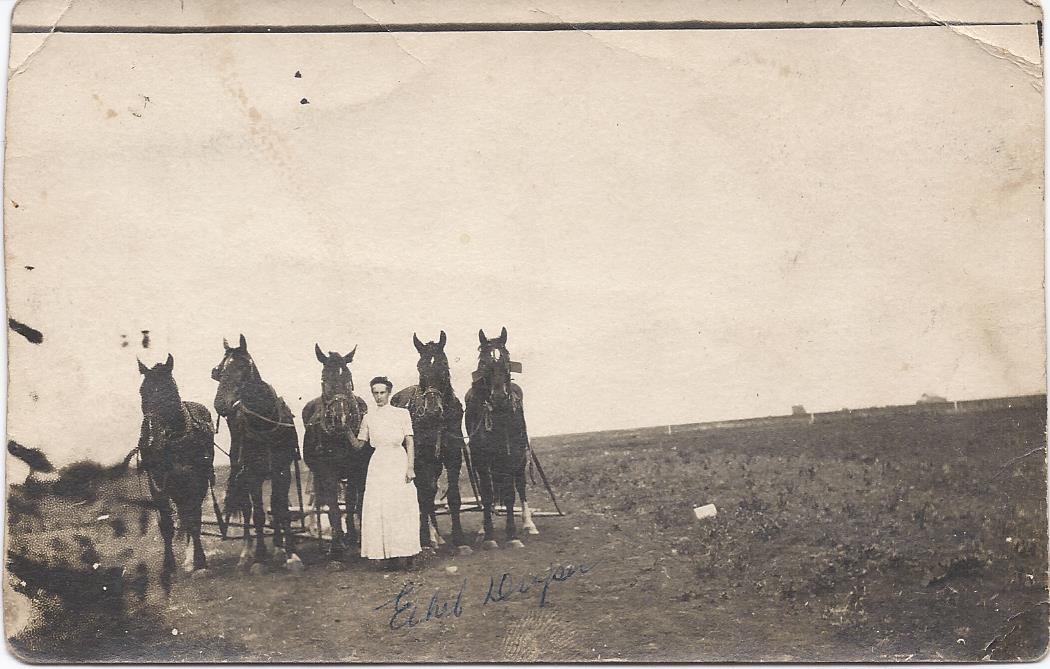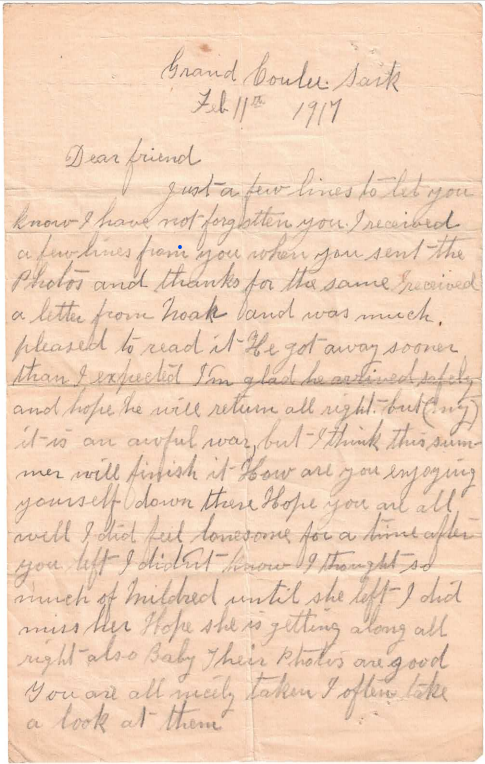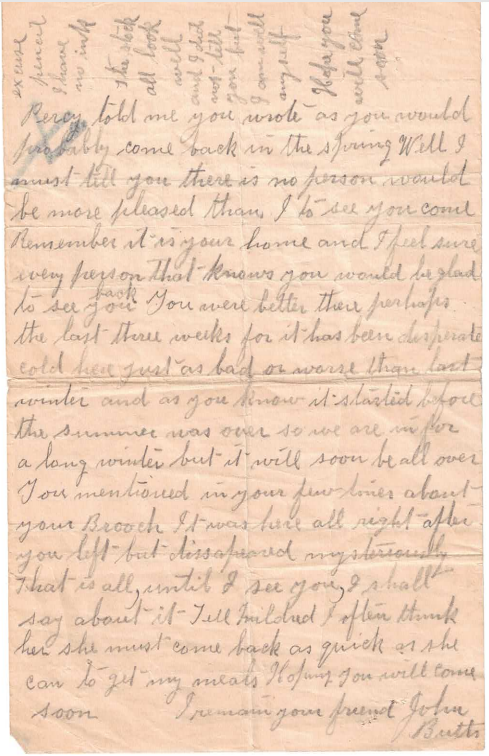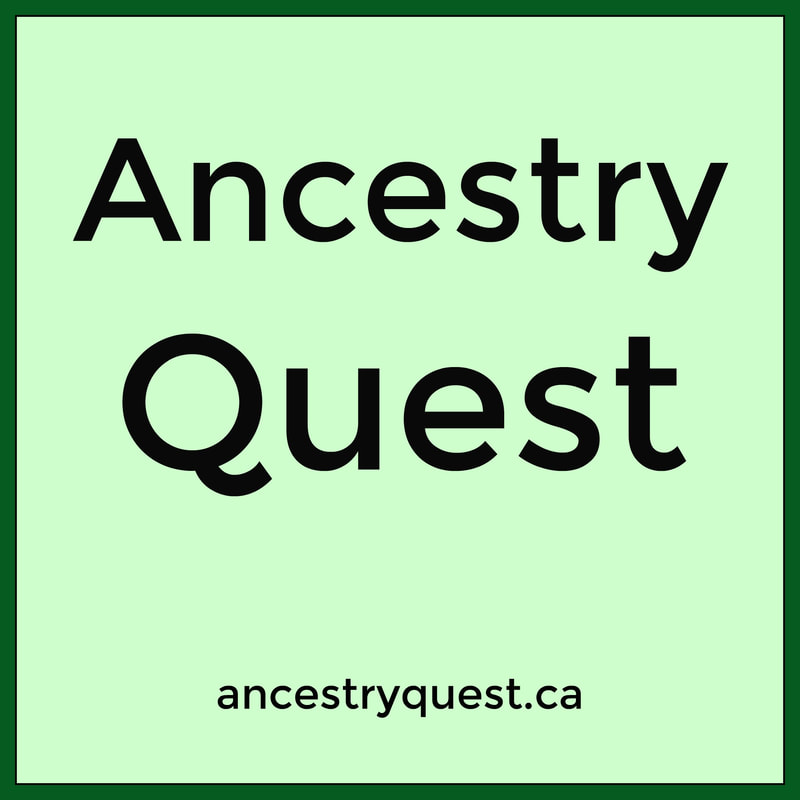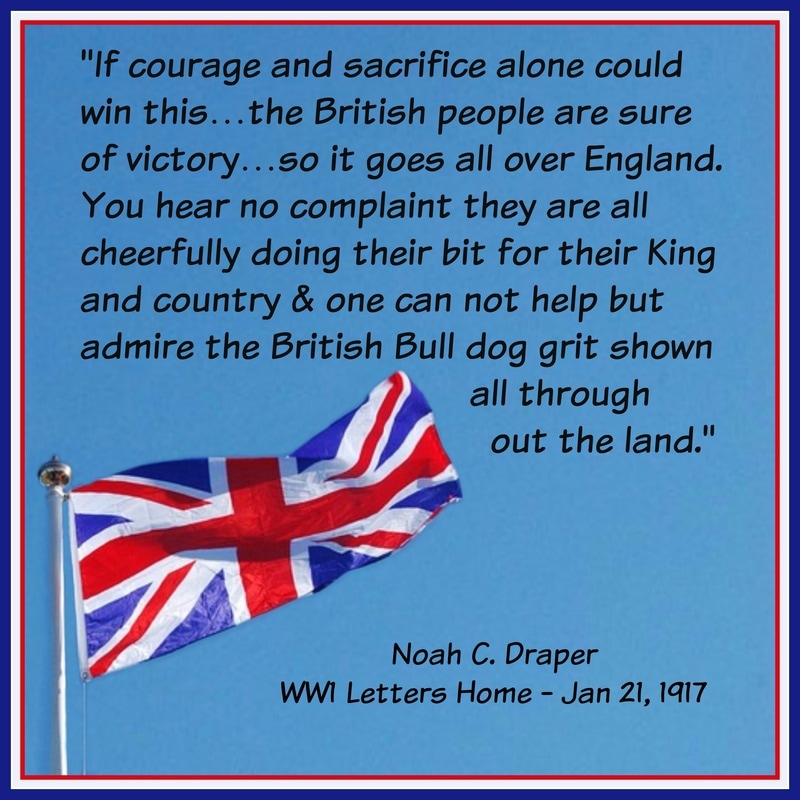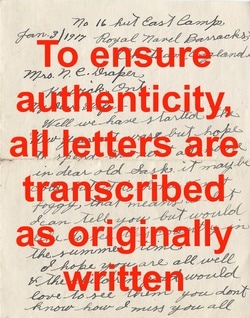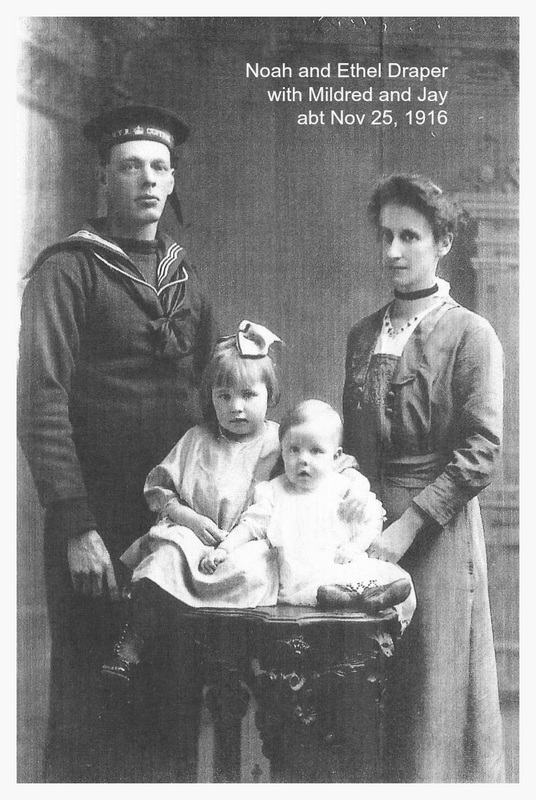On Feb 11, 1917, the same day that Noah was writing his letter to Ethel who was staying with family in Ontario, John Butts, their hired man back in Saskatchewan, was also writing a letter to Ethel:
Author of Letter: John Butts, 60 yrs old according to the 1916 census record
Dated: Feb 11th, 1917
Mailed from: Grand Coulee, Saskatchewan
Profession: Hired Man/Stockman
Rank: N/A
Addressed to: Dear friend (Ethel Draper)
Relationship: Ethel is the wife of Noah Draper, the farm owner
Writing instrument: Pencil
Writing Paper: 2 pages, 5" x 8" lightweight writing paper with faint blue lines and light texture. John Butts has written on the front of both pages, but left the backs empty.
People mentioned in this letter:
Ethel* - Ethel Isabel Nelson, 26 yrs old, Noah's wife of 6 yrs
Mildred* - aka Midge, Noah & Ethel's daughter, 3 yrs old
Baby - James David Draper*, 9 months old, aka Jay in early months
Percy* - Percy Roy Draper, 33 yrs old, Noah's older brother, lives nearby
Places/things mentioned in this letter:
- Keswick - where Ethel is staying with family
Word or Phrase Use:
John Butts is articulate, but has a habit of not using punctuation at the end of sentences.
Legend:
* Look under the Categories/Labels in the right side column for more posts on this
person/place/thing, or use the search box in the header at the top of this page
** See History Note below
| Grand Coulee. Sask Feb 11th 1917 Dear friend Just a few lines to let you know I have not forgotten you. I received a few lines from you when you sent the Photos and thanks for the same I received a letter from Noah and was much pleased to read it He got away sooner than I expected I'm glad he arrived safely and hope he will return all right. but (my) it is an awful war, but I think this sum- mer will finish it How are you enjoying yourself down there Hope you are all well I did feel lonesome for a time after you left I didn't know I thought so much of Mildred until she left I did miss her Hope she is getting along all right also Baby Their Photos are good You are all nicely taken I often take a look at them |
| Percy told me you wrote as you would probably come back in the spring Well I must tell you there is no person would be more pleased than I to see you come Remember it is your home and I feel sure every person that knows you would be glad to see you back You were better there perhaps the last three weeks for it has been desperate cold here just as bad or worse than last winter and as you know it started before the summer was over so we are in for a long winter but it will soon be all over You mentioned in your few lines about your Brooch It was here all right after you left but dissapeared mysteriously That is all, until I see you, I shall say about it Tell Mildred I often think her she must come back as quick as she can to get my meals Hoping you will come soon I remain your friend John Butts |
| excuse pencil I have no ink The stock all look well and I did not tell you but I am well myself Hope you will come soon |
History Notes
History Note - Hired Man, Stockman
When the Province of Saskatchewan came into being in 1905, many of the settlers were from the eastern and southern parts of the Province of Ontario and not used to the months of harsh winter winds that blew unceasingly across the prairies. Like many others, Noah and Ethel spent the winter months with family and friends "back home." Soon after harvest, they would head east by train and not return to the west until it was time to get ready for spring seeding.
All the fieldwork was done with horses. Each farm would have had a cow for milk (shown as a milch cow on census records), or at least access to a family or neighbour's milk supply. The farms would have had poultry for eating and egg production, and other livestock for food and work.
Unfortunately, the 1916 agricultural census records (schedules) have not been preserved, however, on the 1916 Census of Prairie Provinces cumulative report, it shows that the average Saskatchewan livestock amounts per farm were:
Horses 3 yrs and older - 6-9
Horses under 3 yrs - 1-3
Cows Milch - 1-3
Other cattle (oxen, maybe beef cows) - 6
Sheep - 1-2
Swine - 5
Hens & Chickens - 44
Turkeys - 1
Geese - 4
Ducks - 6
Although we don't know how much livestock Noah and Ethel owned when they left Saskatchewan in Oct/Nov 1916, we know they had enough to keep John Butts employed as their hired man. In the post, WW1 Letters - Percy to Ethel Jan 1, 1917, Noah's brother, Percy, wants Ethel to confirm that Mr Butts is to receive $20 per month, because Mr Butts has said he's been reckless with his money and is owed forty dollars. Percy's letter is interesting as it mentions that Mr Butts was out 'celebrating' and talking about quitting.

